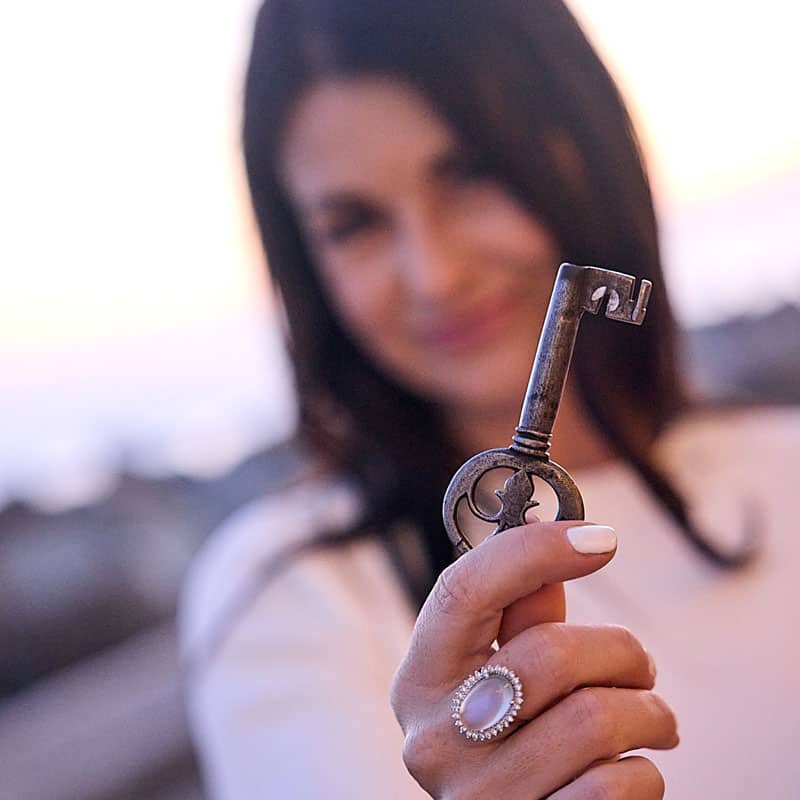Exaholic
What Is It and Could You Be One?
A guest blog by Dr. Andrea Goeglein on Exaholics, the topic of my upcoming book!
“In the end, only three things matter: how much you loved, how gently you lived, and how gracefully you let go of things not meant to be.” -Buddha
A painful breakup. Almost all of us have been through at least one. You fall madly in love with a person who becomes the center of your world. The fantasy is intoxicating. The passion exciting. The experience all-consuming. And then you breakup. Maybe you’ve shared only months together, or perhaps years. The result is that you are utterly gutted and heartbroken. You can’t stop thinking about them. You have a nagging, persistent desire to sit outside their home until they arrive or check their social media dozens of times a day. Your emotions are so up-and-down that you feel out of control and reactive to almost everything. You know it isn’t healthy and want to stop thinking about your ex—but you can’t seem to move on. Your family and friends are worried about you. Sound familiar? You may want to keep reading…

The Holics
Let’s be honest—we’ve all considered ourselves a “holic” of something at some point, right? Maybe seriously or maybe just half-heartedly. There’s the usual culprits of “chocaholic”, “shopaholic,” and “workaholic” or the more somber “alcoholic”. By definition, “holic” is used to describe a person with an unusual or unhealthy dependency or desire on an object or activity. Therefore, simply put, an “exaholic” would be a person with a dependency on or unhealthy desire for their ex. Now, you may consider the exaholic designation as one in the half-hearted category. However, I reached out to a longtime colleague Dr. Cortney Warren to see what she had to say with her upcoming book on the subject.
First, for those of you that don’t know, Dr. Cortney is a board-certified psychologist and expert on addiction, self-deception and eating disorders. Her work spans peer-reviewed journal articles, many book chapters and her own published book. She also appeared on TEDx to speak on matters of self-deception and love. Dr. Warren was gracious enough to give me time for an interview and the following is what she shared on the exaholic in anticipation of her upcoming book. Watch it here!
Exaholic Explained
Let’s start at the top. I asked for Dr. Cortney to explain what an exaholic is in her professional experience:
Dr. Warren: An exaholic is anyone who feels addicted to a former love. It’s a person who is so compelled they can’t stop thinking about their ex. They are obsessed with them to the degree that when they actually break up, they really, truly struggle to move on.
Dr. Goeglein: So, I gave a version of that description saying there’s addiction to alcohol, and addiction to drugs. But many people don’t think that the brain actually gets addicted to love. Isn’t that what we are talking about?
Dr. Warren: That’s exactly what we are talking about. Yes, and you know, with evolving, particularly neurobiological research, it’s amazing what we can learn about how the brain functions and why so many people struggle with addiction to all kinds of things. It doesn’t have to just be a substance; it can be a behavior or a person, gambling, sex, or even love.
Dr. Warren goes on to explain that we often believe love is an emotion or feeling but through analysis and brain scans, it is more complex than just a “feeling”. Those persistent, burning, nagging desires to follow someone, think about them, checking in on them – yearning for them is triggering a very primal part of the brain that is more of a drive than “feeling”. These desires or obsessions – this drive – is associated with the basic human need for connection.
Exaholics, like any other “holic” struggling with addiction knows what they are doing isn’t rational and knows that intellectually they should move on, but the compelling desire – the craving – gets in the way. So, if romantic love is a primal drive that overrides the exaholic’s sensibilities, I wanted to know if Dr. Warren could share some guidance to the heart broken.
Awareness is the Key
The biggest takeaway is the importance of awareness.
Dr. Warren posits: “You need the awareness of a situation to start. You need the self-evaluation to be able to acknowledge the truth; but that’s only going to get you so far. You actually have to make changes. In fact, you really have to do something differently. And I think one thing that is very helpful about the neuro-biological research is that it helps explain why you have these reactions to your ex. And it’s normalizing. And truly, there’s nothing wrong with you. You’re not crazy. Your brain is being stimulated as if you were using cocaine.”
For those heart-broken exaholics that have perhaps already gained some self-awareness, Dr. Warren offered a sneak peak of what to expect for her book. Taking the perspective of sitting across from her in session, her upcoming book offers the guidance, skills and tools to get over the heartbreak and move on.
Moving On Isn’t Easy – It’s Work
Knowing now that heartbreak and romantic love is more than a “feeling”, it is understandable why moving on can be so hard. The primal drive to act irrational out of the need for human connection can make one think that moving on is impossible when in the heat of the moment. However, it is possible.
Everything starts with something known as triage—treating the most serious symptoms that are causing the most distress. It is the process by which therapists treat the overbearing symptoms of crisis first so you can then focus on the underlying issues. Triage focuses on the immediate need for relief. Once the emergent and overbearing symptoms are managed, underlying issues are often identified and then addressed through cognitive behavioral therapy (CBT).
CBT focuses on learning—how your thoughts, feelings, and behaviors interact to make mental health symptoms better or worse and how to change. Treatment often starts with bringing awareness to inaccurate or negative thinking while providing tools for coping and behavior modification. Changing behavior and/or thinking is not an easy task. But it is possible.
The bottom line is that, if you are or think you are an exaholic, you’re not alone and there is hope! You wouldn’t be the first or only one that felt like a crazy, irrational person when obsessing over the ex. It is a “thing” – a real addiction based on the complex workings of our brain and primal need for human connection. It has or will happen to everyone at some point in their lives. Now, how you deal with it and choose to move forward, is up to you.
You could consider Dr. Warren’s book when it comes available or reach out using the information below. Until then, you can watch her TEDx talk here.
Contact Us!
Website: DrCortney.com
YouTube: http://ow.ly/RUya50GdpkF
Facebook: https://www.facebook.com/CortneySWarren/
Twitter: https://twitter.com/DrCortneyWarren
LinkedIn: http://ow.ly/6KJu50GdpjQ
Google Scholar: http://ow.ly/ssjf50Gdpib
Andrea Goeglein, PhD is a Success Catalyst using the science of positive psychology to work with people to solve their thinking problems. Andrea is the founder, curator and author of the Don’t Die™ self-development collection of books. Her latest book is Don’t Die Waiting to Be Brave. Dr. Goeglein is also co-founder and co-host of the Hey, Boss Lady! Podcast currently in Season 2.
Website: ServingSuccess.com
YouTube: https://www.youtube.com/user/ServingSuccess
LinkedIn: https://www.linkedin.com/in/drsuccessphd/
Instagram: https://www.instagram.com/drsuccess/
Podcast: https://linktr.ee/HeyBossLady
TO READ MORE OF DR. CORTNEY'S WORK, SUBSCRIBE TO HER BLOG
Safe subscribe. You will have the opportunity to opt-out with every notice we send.

